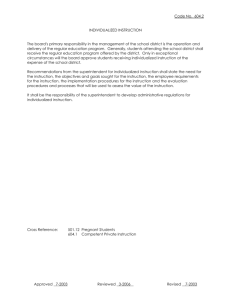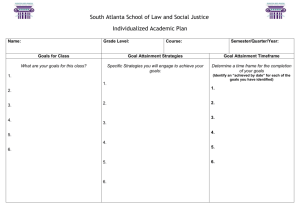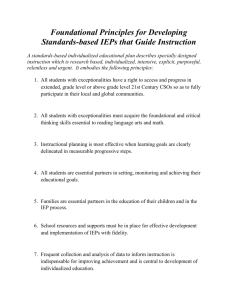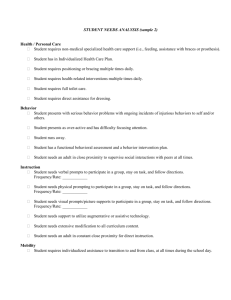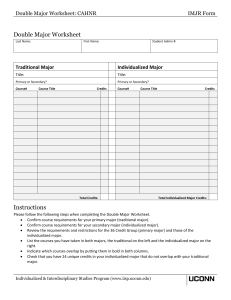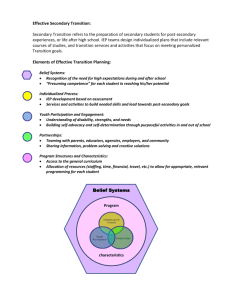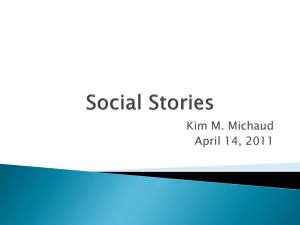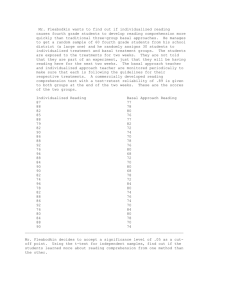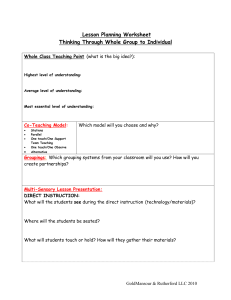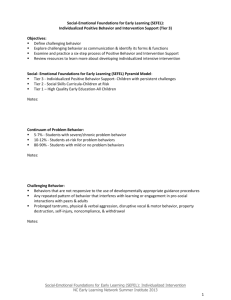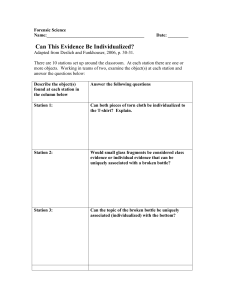1-Individualized Intervention
advertisement
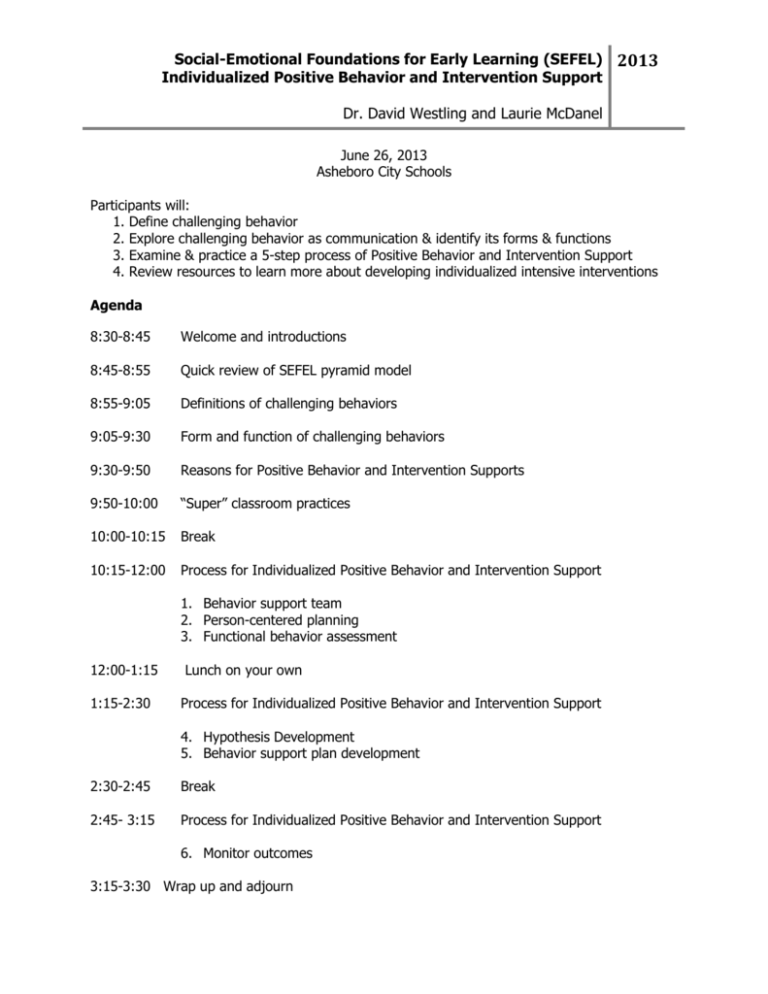
Social-Emotional Foundations for Early Learning (SEFEL) 2013 Individualized Positive Behavior and Intervention Support Dr. David Westling and Laurie McDanel June 26, 2013 Asheboro City Schools Participants will: 1. Define challenging behavior 2. Explore challenging behavior as communication & identify its forms & functions 3. Examine & practice a 5-step process of Positive Behavior and Intervention Support 4. Review resources to learn more about developing individualized intensive interventions Agenda 8:30-8:45 Welcome and introductions 8:45-8:55 Quick review of SEFEL pyramid model 8:55-9:05 Definitions of challenging behaviors 9:05-9:30 Form and function of challenging behaviors 9:30-9:50 Reasons for Positive Behavior and Intervention Supports 9:50-10:00 “Super” classroom practices 10:00-10:15 Break 10:15-12:00 Process for Individualized Positive Behavior and Intervention Support 1. Behavior support team 2. Person-centered planning 3. Functional behavior assessment 12:00-1:15 1:15-2:30 Lunch on your own Process for Individualized Positive Behavior and Intervention Support 4. Hypothesis Development 5. Behavior support plan development 2:30-2:45 Break 2:45- 3:15 Process for Individualized Positive Behavior and Intervention Support 6. Monitor outcomes 3:15-3:30 Wrap up and adjourn
